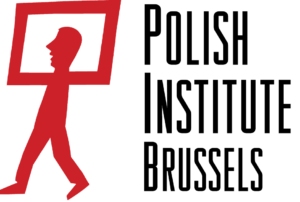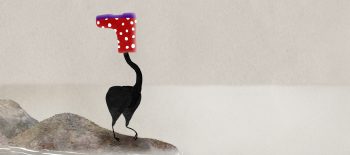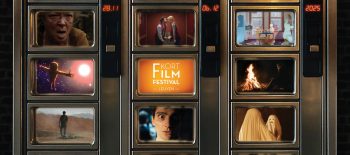Screening of the film ‘Warsaw Uprising’ as part of the Waterloo International Film Festival
The third edition of the International History Film Festival will take place from 15 until 18 October in Waterloo. Audiences will have the chance to see the best of what the field of history films is producing across the world.
The film Warsaw Uprising is in competition in the ‘Documentaries’ category. It will be screened on 16 October in the presence of Piotr ŚLIWOWSKI, the director of the History Department of the Warsaw Uprising Museum.
+++ Learn more about the film
+++ Learn more about the festival
+++ Learn more about the Warsaw Uprising
Apart from the Warsaw Uprising you can watch two other Polish films at the festival:
Letnie Przesilenie by Michał Rogalski and Obywatel by Jerzy Stuhr.
PRACTICAL INFORMATION
>>> WELLINGTON Cinema (Chaussée de Bruxelles 165, 1410 Waterloo) – see map
>>> Salle 4
>>> Friday 16 October 2015 – 16:00
>>> 7€ | 5€
Information and reservations at Maison du Tourisme de Waterloo +32 (0)2 352 09 10
Warsaw Uprising (2014, Poland, 87min)
is the first documentary film in the world to use archive footage alone in order to create an original story which is faithful to historical events. The author of the film imagined the story of the Warsaw Uprising (1 August – 2 October 1944) seen through the eyes of an American pilot who has escaped a Nazi camp and two young Polish reporters who film various episodes illustrative of life during this period. The original images have been colourised and the sound remastered.
+++ More information in the document attached to this webpage and on the film’s website.
Film concept and production – Jan Ołdakowski, Piotr Śliwowski
Director – Jan Komasa
Script consultant, consulting director – Władysław Pasikowski
Script – Joanna Pawluśkiewicz, Jan Ołdakowski, Piotr Śliwowski
Editing – Joanna Brühl
Editing supervision – Milenia Fiedler PSM
Colour grading supervision – Piotr Sobociński Jr, PSC
Dialogues – Joanna Pawluśkiewicz, Michał Sufin, Władysław Pasikowski
Voice casting directors – Magdalena Szwarcbart, Miriam Aleksandrowicz, Agnieszka Matysiak
Dubbing directors – Miriam Aleksandrowicz, Władysław Pasikowski
Sound design – Bartosz Putkiewicz, Kacper Habisiak MPSE, Marcin Kasiński MPSE
Music – Bartosz Chajdecki
Warsaw Uprising – a few historical details
Poland was invaded by Nazi troops on 1 September 1939. Seventeen days later, Soviet Union troops broke through its borders.
When Hitler decided to invade the Soviet Union, some of the combat took place on Polish territory, decimating the population and destroying even more infrastructure. Nazi concentration camps were soon set up and entire categories of civil society were massacred, notably Jews, who, in Poland as in the rest of occupied Europe, were ‘cooped’ in ghettos.
The Warsaw ghetto, facing threats that it would be ‘demolished’ at the beginning of 1943, rose up and put up a fierce resistance to the Nazi troops. This insurrection, known as the ‘Warsaw Ghetto’, lasted from 19 April until 16 May. Those Jews who survived were deported and around 15% of the City was destroyed.
In 1944, German troops pushed back the land which lay to the east, harried by the Soviet troops who had regained the advantage. In this set-up, the Soviets were part of the group of ‘Allies’, just like the Americans, the British, the French, the Belgians, etc. However, the inhabitants of Warsaw, the city in which the Resistance (the Interior Army; Armia Krajowa in Polish or AK) was extremely active, were suspicious of Stalin’s intentions. In order to meet the Soviet troops – who were gradually liberating the Polish territory – in a strong position, the decision was made to organise an uprising in Warsaw. It broke out on 1st August 1944 at exactly 17:00 (‘W’ hour). Exhausting street battles, executions, rapes and massacres were daily occurrences in the city in which the resistants, the majority of whom had not been mobilised, the youngest members of society and women, with little or no training in handling weapons, lived on hope alone as the weeks dragged on. The Nazi troops, who had copious amounts of weapons and ammunition, refused to budge. The AK resisted with amazing obstinacy, using the sewers to connect the regiments. When the Soviet armies finally arrived at the gates of the city on 10 September, they decided to stop on the bank beside the Vistula and thus didn’t help the insurgents, even preventing supplies from getting through. The Uprising was deemed a failure. On 2 October 1944, General Bór-Komorowski surrendered.
More than 15,000 Polish combatants perished in the battles, along with almost as many Nazi soldiers. It was above all the civil population that suffered as a result, since more than 150,000 lost their lives. 25% of the city’s buildings were destroyed during the battles and a further 35% after the defeat, when Hitler ordered the systematic destruction of homes in the city. In all, over the course of the war, more than 85% of the city of Warsaw was destroyed.
Interesting fact: at the very moment when the inhabitants of Warsaw were revolting, the First Armoured Division (Pierwsza Dywizja Pancerna), commanded by General Stanisław Maczek, was liberating Flanders! After participating in the Normandy campaign in the First Canadian Army, the Division moved towards the Belgian border and crossed Flanders (Ypres was liberated on 6 September) to reach the Dutch border (Breda was liberated on 29 October 1944).
In order to commemorate the liberation of Flanders by General Maczek’s troops, the Polish Institute, in collaboration with the Embassy of the Polish Republic in Brussels and 9 Flemish cities and municipalities, is organising the Polish days in Flanders (Dni Polskie we Flandrii). You can see the programme at www.culturepolonaise.eu/PL-VL.
Waterloo International History Film Festival
Each year, the festival puts on film treasures from across the world for the audience to enjoy at premieres. The official competition is linked to various sub-activities: an opening gala, musical evenings, concerts, exhibitions, audiences with the experts, debates and exchanges between writers and film makers.
+++ Festival’s website





